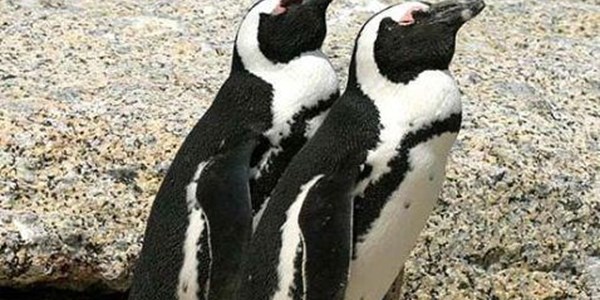Human Interest
Loss of species even worse than previously thought─── 09:57 Tue, 30 Sep 2014

London - The global loss of species is even worse than previously thought, the London Zoological Society (ZSL) says in its new Living Planet Index.
The report suggests populations have halved in 40 years, as new methodology gives more alarming results than in a report two years ago.
The report says populations of mammals, birds, reptiles, amphibians and fish have declined by an average of 52%.
Populations of freshwater species have suffered an even worse fall of 76%.
Compiling a global average of species decline involves tricky statistics, often comparing disparate data sets.
The team at the zoological society say they've improved their methodology since their last report two years ago - but the results are even more alarming.
Then they estimated that wildlife was down "only" around 30%. Whatever the numbers, it seems clear that wildlife is continuing to be driven out by human activity.
The society's report, in conjunction with the pressure group WWF, says humans are cutting down trees more quickly than they can re-grow, harvesting more fish than the oceans can re-stock, pumping water from rivers and aquifers faster than rainfall can replenish them, and emitting more carbon than oceans and forests can absorb.
It catalogues areas of severe impact - in Ghana, the lion population in one reserve is down 90% in 40 years.
In West Africa, forest felling has restricted forest elephants to 6-7% of their historic range.
In Nepal, habitat loss and hunting have reduced tigers from 100,000 a century ago to just 3,000.
In the UK, the government promised to halt wildlife decline - but bird numbers continue to fall.
The index tracks more than 10,000 vertebrate species populations from 1970 to 2010. It reveals a continued decline in these populations. The global trend is not slowing down.
The report shows that the biggest recorded threat to biodiversity comes from the combined impacts of habitat loss and degradation, driven by what WWF calls unsustainable human consumption.
BBC News
The report says populations of mammals, birds, reptiles, amphibians and fish have declined by an average of 52%.
Populations of freshwater species have suffered an even worse fall of 76%.
Compiling a global average of species decline involves tricky statistics, often comparing disparate data sets.
The team at the zoological society say they've improved their methodology since their last report two years ago - but the results are even more alarming.
Then they estimated that wildlife was down "only" around 30%. Whatever the numbers, it seems clear that wildlife is continuing to be driven out by human activity.
The society's report, in conjunction with the pressure group WWF, says humans are cutting down trees more quickly than they can re-grow, harvesting more fish than the oceans can re-stock, pumping water from rivers and aquifers faster than rainfall can replenish them, and emitting more carbon than oceans and forests can absorb.
It catalogues areas of severe impact - in Ghana, the lion population in one reserve is down 90% in 40 years.
In West Africa, forest felling has restricted forest elephants to 6-7% of their historic range.
In Nepal, habitat loss and hunting have reduced tigers from 100,000 a century ago to just 3,000.
In the UK, the government promised to halt wildlife decline - but bird numbers continue to fall.
The index tracks more than 10,000 vertebrate species populations from 1970 to 2010. It reveals a continued decline in these populations. The global trend is not slowing down.
The report shows that the biggest recorded threat to biodiversity comes from the combined impacts of habitat loss and degradation, driven by what WWF calls unsustainable human consumption.
BBC News













